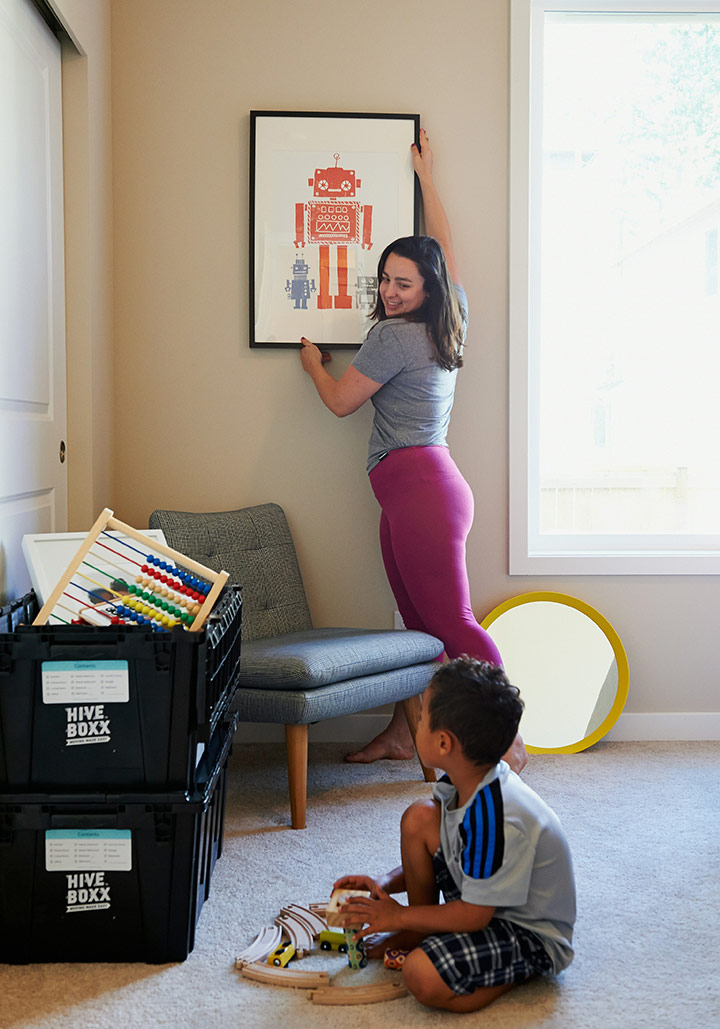Buying a home? Start here
The home buying process has many interconnecting steps, but it doesn’t have to be overwhelming. From figuring out how much you can afford to getting pre-approved, house hunting, and making an offer, there are a lot of moving parts. The good news? I’m here to guide you through every step and make it all feel manageable.

1. Review your finances
Buying your first home begins with understanding your finances. Before you begin your search, review your income, debts, savings and credit score. Your credit score plays a major role in determining your mortgage eligibility and interest rates. Lenders use your credit score to assess your financial reliability; higher scores often result in better loan terms and lower interest rates, saving you thousands of dollars over the life of your loan. On the other hand, a lower credit score can lead to higher interest rates or even difficulty securing financing.
To raise your credit score, focus on paying down existing debts, ensure bills are paid on time, and avoid opening new lines of credit while preparing for your home purchase. It’s also a good idea to check your credit report for any errors and get them corrected. Improving your credit score, even by a few points, can make a significant difference in your mortgage terms and help you afford more home for the money.
Access your free credit report at https://www.freecreditreport.com/
How much house can you afford?
Before you start house hunting, it’s important to understand your budget. Use the mortgage calculator below to estimate your monthly payments based on different home prices and loan options. It’s a quick and easy way to get a clearer picture of what fits within your financial comfort zone.
Mortgage Calculator
2. Get pre-approved
Getting pre-approved for a mortgage is a critical first step in the home-buying process. It shows sellers that you’re a serious buyer and provides a clear picture of how much you can borrow. A lender will evaluate your financial details, including income, credit history, and debt-to-income ratio, to give you a pre-approval letter that strengthens your offer. It’s important to have that pre-approval letter in hand as you begin looking at properties so that you’re able to move into the offer stage without delays if you find a home you love.
Need help finding a mortgage lender? I’ve got you covered! I can connect you with some great lending agents here in Chicago.


3. Find an agent and start your home search
Partnering with the right real estate agent can make all the difference in your home-buying journey. A skilled agent brings expert knowledge of the local market, helping you find homes that meet your specific needs and budget. They’ll guide you through the entire process, from setting up showings and finding the best neighborhoods to navigating paperwork and negotiating with sellers. A great agent listens to your concerns, answers your questions, and serves as your advocate during the entire transaction. The very best agents extend their relationship with you beyond the sale and become your agent for life, helping with everything from contractor referrals to refinancing advice!
With your pre-approval and a trusted real estate agent by your side, the fun part begins: searching for your dream home! At this stage, it’s important to clearly define your priorities. Hone in on factors like location, neighborhood vibe, commute times, school districts, and nearby amenities.
Think about the type of home that suits your lifestyle. Is it a cozy condo? A single-family home with a yard, or a townhome with low maintenance? Be realistic about what you need versus what you want, and keep an open mind during the search. Your agent will send you listings that match your criteria and arrange showings or open house visits.
Pay close attention to the condition of the home, layout, and any potential repairs or upgrades you might need to make. It’s also helpful to explore the neighborhood during different times of day to get a sense of the community.
In Chicago’s competitive sellers market, homes can move quickly, so be ready to act fast when you find something you love!
The Renter’s Guide to Buying a Home
Not sure where to start? Grab my free guide, The Renter’s Guide to Buying a Home—your easy-to-follow roadmap from renting to owning in Chicago. It breaks down everything a first-time homebuyer needs to know, from saving for a down payment to closing on your dream home. Download it now and take the first step toward homeownership!
4. Make an offer
When you find the home you love, the next step is making an offer. Your real estate agent will help you determine a competitive offer price based on comparable homes in the area and current market conditions. The offer will include the price, any contingencies (such as a home inspection), and proposed closing date. Be prepared to negotiate with the seller.


5. Get a home inspection
Once your offer is accepted, it’s time for one of the most important steps in the buying process: the home inspection. A home inspection is a thorough evaluation of the property’s condition, performed by a licensed inspector. This inspection will assess the structural components of the home, including the foundation, roof, plumbing, electrical systems, and HVAC. It’s designed to identify any potential problems, from minor repairs to major issues that could impact your decision to move forward with the purchase.
The home inspector should provide a detailed report highlighting any areas of concern, such as leaks, cracks, outdated wiring, or insufficient insulation. You should attend the inspection if possible so you can ask questions and gain a better understanding of the property’s condition. If the inspector finds significant problems, you may have options: you can negotiate with the seller for repairs, ask for a price reduction, or even decide to walk away from the deal if the issues are too severe. The inspection gives you peace of mind by ensuring there are no hidden surprises after you move in.
6. Prepare to close
After the home inspection is complete and any necessary negotiations are settled, it’s time to focus on finalizing your mortgage. This is when your lender will confirm the details of your loan and prepare for closing. During this phase, the lender will order an appraisal to ensure the home’s value aligns with the negotiated purchase price.
Your lender will also finalize your loan’s interest rate, loan term, and any payment structure. They’ll review any additional documents needed for approval, like updated bank statements or proof of employment. At this point, it’s essential to avoid any major financial challenges, such as opening new credit lines or making large purchases, as these could impact your loan approval. Once all the paperwork is in order and the appraisal comes back satisfactory, you’ll receive a Closing Disclosure that outlines all the final loan details, including your total monthly payment, interest rate, and closing costs.
Before closing, you’ll complete a final walk-through of the home along with your agent to ensure it’s in the agreed-upon condition. At closing, you’ll pay any remaining closing costs, sign the mortgage documents, and receive the keys to your new home!


7. Move in
Congratulations, home owner!
After closing, it’s time to move in and enjoy your new home. Whether you’re hiring movers or doing it yourself, moving day is an exciting milestone. Once settled in, focus on maintaining your property and making it your own.
Be sure to create a checklist to stay organized during the move. Set up utilities in your name and submit a change of address with important institutions like banks as the USPS.

Let’s chat about your home-buying goals
Every home buyer’s journey is unique, and I’d love to help you navigate yours armed with the confidence to make good decisions. Whether you have questions about what kind of monthly payment you can afford, the current housing market, or just where to begin, let’s set up a free one-on-one consultation. Over Zoom, I’ll walk you through the process and answer all your questions—no pressure, just helpful guidance.




